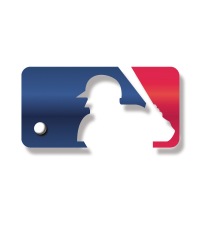 MLB approved the introduction of an expanded instant replay system for the 2014 season onwards a couple of weeks ago and it’s no exaggeration to state that this will be the most significant change to MLB for decades.
MLB approved the introduction of an expanded instant replay system for the 2014 season onwards a couple of weeks ago and it’s no exaggeration to state that this will be the most significant change to MLB for decades.
Division realignment, playoff expansion and interleague play have all had an impact in recent years, but the new replay system will fundamentally change the game we watch on a daily basis.
Any replay system is introduced with the word ‘compromise’ kept firmly in mind. There are many different ways in which it could be implemented, all with their own pluses and minuses, and you will never get complete agreement on whichever solution is finally put in place.
Having contemplated the impact of the new system, it should be an improvement to the current officiating practice, but there’s one aspect that concerns me enough to make me think it could undermine the whole process.
My stance on replay has always been that it is the umpiring crew’s responsibility to officiate the game and any instant replay system should be introduced as a tool for the umpires to help them get more decisions right.
I’m not a fan of relying on manager or player challenges for this very reason.
In the new replay system managers will get one challenge per game, plus another if that first challenge is upheld. That at least limits the challenge process and hopefully should ensure that managers hold them back to use them on clearly incorrect decisions, or at least what they judge to be clearly incorrect, rather than wasting time challenging for the sake of it.
However, umpires will not be able to call for a review themselves until the seventh inning, aside from the existing home run reviews which will follow the same process as before. I’d guess that’s been introduced to limit the number of potential reviews in a game, but the consequences of that aren’t a compromise I’d make.`1
Let’s say it’s the top of the second inning, Team A is already 3-0 up with a couple of runners on base and has Team B’s ace pitcher on the ropes. If Team B gets out of the jam on a very questionable call, Team A may well challenge that, figuring that a run or two would score (perhaps) and if the pitcher then gives up another hit he could be knocked out of the game early, rather than settling down and keeping the game tight over the next four or five innings.
The idea of the replay system – absolutely rightly – is to stop clear errors and to base decisions to overturn an initial ruling on “clear and convincing evidenceâ€. If it’s a bang-bang play in which extreme slow-mo replays still leave doubt, it’s fair to go with the initial ruling. Otherwise we’d end up reviewing every single decision ‘just in case’.
The problem here though is that Team A could do everything right – strategically a sound call to challenge at that time and maybe it’s a case where instinct makes you think the call was wrong, but you don’t have a clear shot to say that for definite (as you sometimes get in rugby, for example, where you suspect the ball was put down for a try but the mass of bodies doesn’t allow you to conclusively prove it) – and yet they lose the challenge.
The consequence is that neither the team nor the umpires would be able to review a clearly incorrect call from then on, up until the umpire’s review zone from the seventh inning onwards. So a dodgy decision in the fourth inning that could have decided the game – i.e. would have given Team A a commanding lead had it not been wrong – would be allowed to stand.
I understand the argument that the team had a chance to challenge it – had that not used their challenge earlier – but a replay system that doesn’t stop clearly incorrect decisions seems a bit of a nonsense to me.
We always hear that no one feels worse than the umpire when they see a decision on replay after the game and they know they stuffed it up. These are professionals who take pride in their work and like every one of us will occasionally make a mistake. Maybe the excuse that the manager used up their challenge will cover this in place of the umpires feeling under pressure to send decisions for review throughout the game.
I still go back to the point that it’s the umpire’s responsibility to officiate the game correctly and I don’t state that on a ‘heap all the blame on the umpire’ basis, just that owning this responsibility is surely the whole point of being an umpire and why in the vast majority of cases those in MLB have every right to feel a great sense of satisfaction for a job well done (bearing in mind it’s the accepted lot of a sports official to be noticed only when you’ve done something wrong).
Introducing an expanded replay system is a real step forward and most of the decisions about its format are to be applauded, not least getting rid of the ridiculous sight of umpires going off to their little ‘ump cave’ to review plays and instead turning the process over to replay umpires in a central office.
However, leaving umpires impotent to call for reviews during two-thirds of a regulation nine-inning game goes against the reason for having the system at all.
All parties have made clear that this is just the first iteration of the system and that it will be modified based on experience. We can expect to see improvements as time moves on and I’d anticipate that the limitation on umpire reviews will be a sticking point that’s rectified over the next few seasons.

